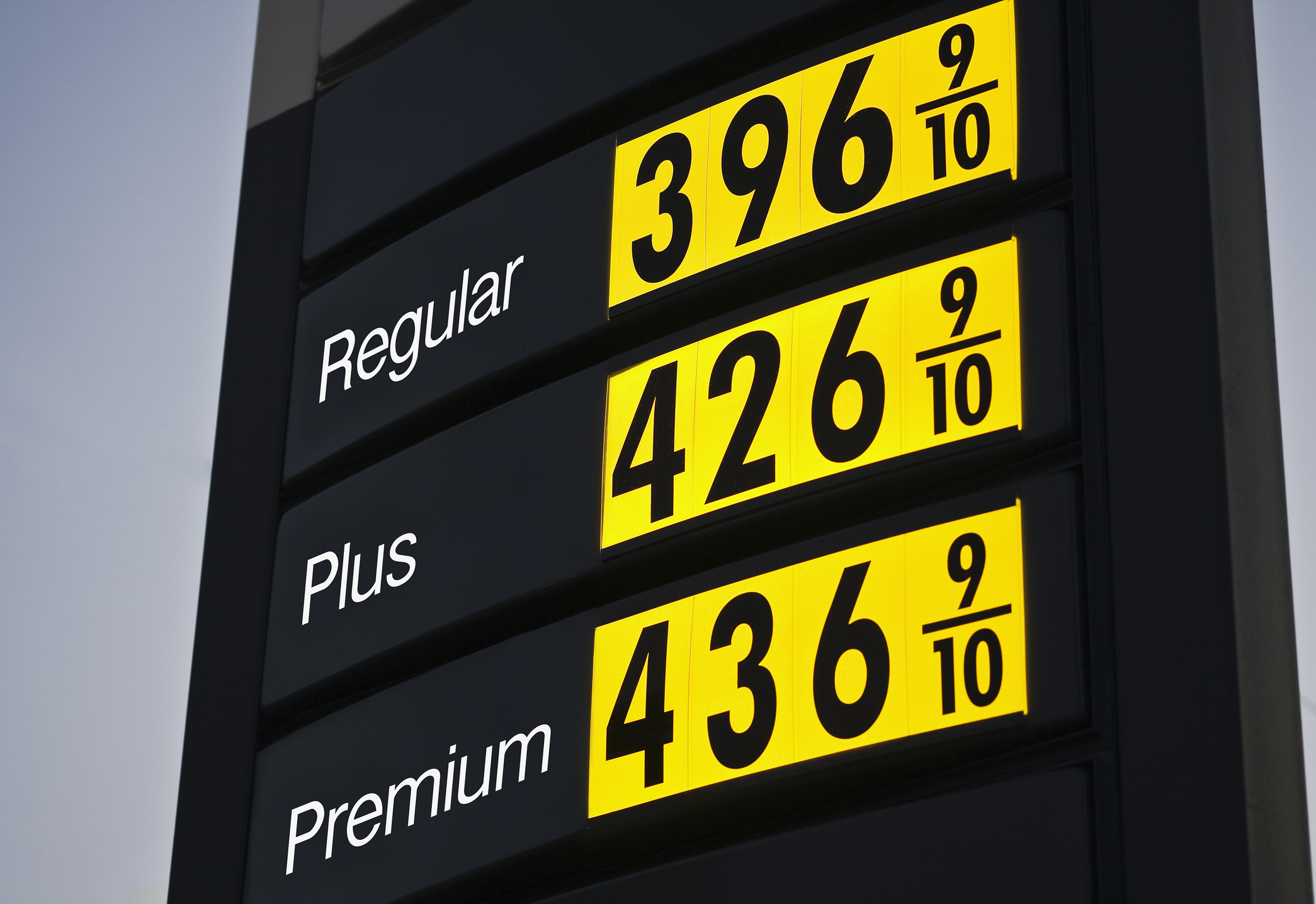Car Buying Is Stressful
The real struggle for a deal is often waged in the finance and insurance office.

Profit and prosper with the best of Kiplinger's advice on investing, taxes, retirement, personal finance and much more. Delivered daily. Enter your email in the box and click Sign Me Up.
You are now subscribed
Your newsletter sign-up was successful
Want to add more newsletters?

Delivered daily
Kiplinger Today
Profit and prosper with the best of Kiplinger's advice on investing, taxes, retirement, personal finance and much more delivered daily. Smart money moves start here.

Sent five days a week
Kiplinger A Step Ahead
Get practical help to make better financial decisions in your everyday life, from spending to savings on top deals.

Delivered daily
Kiplinger Closing Bell
Get today's biggest financial and investing headlines delivered to your inbox every day the U.S. stock market is open.

Sent twice a week
Kiplinger Adviser Intel
Financial pros across the country share best practices and fresh tactics to preserve and grow your wealth.

Delivered weekly
Kiplinger Tax Tips
Trim your federal and state tax bills with practical tax-planning and tax-cutting strategies.

Sent twice a week
Kiplinger Retirement Tips
Your twice-a-week guide to planning and enjoying a financially secure and richly rewarding retirement

Sent bimonthly.
Kiplinger Adviser Angle
Insights for advisers, wealth managers and other financial professionals.

Sent twice a week
Kiplinger Investing Weekly
Your twice-a-week roundup of promising stocks, funds, companies and industries you should consider, ones you should avoid, and why.

Sent weekly for six weeks
Kiplinger Invest for Retirement
Your step-by-step six-part series on how to invest for retirement, from devising a successful strategy to exactly which investments to choose.
Buying a car is one of the most anxiety-producing financial tasks many people will ever tackle. Cars have price tags, of course, but everyone knows you’re not supposed to pay the full sticker price and that you’ll have to haggle face-to-face with the dealer to get a good deal.
So car shoppers long for transparency and to be able to lock in the price of the vehicle online. That’s why online “no haggle” services are popular. The Goliath in this space is TrueCar. According to the TrueCar website, a participating dealer gives you “an upfront, discounted price that includes all fees, accessory costs and incentives.” But as David Muhlbaum reports in Drive Time, TrueCar has some caveats that you should know about before you use the site to buy your next car.
David also tried out the CarBargains service provided by the nonprofit Consumers’ Checkbook organization. With CarBargains, you pay $250 to have the service shop at least five local dealers. CarBargains doesn’t rely on big data or algorithms. It’s effective because the dealers know they are competing for your business. It’s transparent because the dealers’ prices for the cars and all options you specify are measured against the published invoice price.
From just $107.88 $24.99 for Kiplinger Personal Finance
Become a smarter, better informed investor. Subscribe from just $107.88 $24.99, plus get up to 4 Special Issues

Sign up for Kiplinger’s Free Newsletters
Profit and prosper with the best of expert advice on investing, taxes, retirement, personal finance and more - straight to your e-mail.
Profit and prosper with the best of expert advice - straight to your e-mail.
As fraught as negotiating a new car’s price can be, it’s even more stressful when you’re shopping for a used car, when a car’s repair and accident history is often unknown. I hit some speed bumps not long ago when I helped my daughter buy a used Kia Sportage. We started the search on Carvana, one of a handful of sites where you can buy or sell a used car at a no-haggle price and have it shipped to you—or, in my daughter’s case, to Madison, Wis. We also checked AutoTrader.com and found a local dealer with a Sportage for a few hundred dollars below Kelly Blue Book’s “fair purchase price.” I negotiated the price down a few hundred dollars by e-mail and sent my daughter to the dealership.
The F&I hurdle. My daughter and I agreed that she would finance about half the cost of the car with the dealership. But when she sent me the paperwork, I discovered that she had also signed contracts for a $2,500 extended warranty, plus an $895 gap insurance policy. Kias have a 10-year/ 100,000-mile powertrain warranty, so the extended warranty was mostly superfluous. Gap insurance covers the difference between the insurance payoff if your car is totaled and what you owe on the loan. But because we made a down payment worth half the cost of the car, that scenario would never happen.
New or used, the real struggle to land a good deal on a vehicle is often waged in the finance and insurance office. Dealers are promoting extras, such as extended warranties and paint-protection plans, because the profit margin on car sales has shrunk. As reported recently in the Wall Street Journal, dealerships earned an average of $420 from a new vehicle sale last year, but they made an average of $908 per new vehicle on their F&I business, according to research by J.D. Power.
I told my daughter not to get an extended warranty, but either from an outsize trust in my ability to lock down the entire transaction long-distance or a misplaced faith in the used-car dealer, she was oblivious to the add-ons. She said she was sent to the F&I office, where she was told to sign a series of documents—and that was it.
After I, uh, reminded my daughter about some financial fundamentals, we went through the time-consuming process of canceling both products. One thing she remembered to ask was whether she could prepay the loan without penalty. The answer is yes, and that’s what she plans to do.
Profit and prosper with the best of Kiplinger's advice on investing, taxes, retirement, personal finance and much more. Delivered daily. Enter your email in the box and click Sign Me Up.

Mark was the editor of Kiplinger's Personal Finance magazine from July 2017 to June 2023. Prior to becoming editor, he was the Money and Living sections editor and, before that, the automotive writer. He has also been editor of Kiplinger.com as well as the magazine's managing editor, assistant managing editor and chief copy editor. Mark has also served as president of the Washington Automotive Press Association. In 1990 he was nominated for a National Magazine Award. Mark earned a B.A. from University of Virginia and an M.A. in Writing from Johns Hopkins University. Mark lives in Washington, D.C., with his wife, and they spend as much time as possible in their Glen Arbor, Mich., vacation home.
-
 Dow Adds 1,206 Points to Top 50,000: Stock Market Today
Dow Adds 1,206 Points to Top 50,000: Stock Market TodayThe S&P 500 and Nasdaq also had strong finishes to a volatile week, with beaten-down tech stocks outperforming.
-
 Ask the Tax Editor: Federal Income Tax Deductions
Ask the Tax Editor: Federal Income Tax DeductionsAsk the Editor In this week's Ask the Editor Q&A, Joy Taylor answers questions on federal income tax deductions
-
 States With No-Fault Car Insurance Laws (and How No-Fault Car Insurance Works)
States With No-Fault Car Insurance Laws (and How No-Fault Car Insurance Works)A breakdown of the confusing rules around no-fault car insurance in every state where it exists.
-
 10 Things You Should Know About Buying a Car Today, Even if You've Bought Before
10 Things You Should Know About Buying a Car Today, Even if You've Bought BeforeIf buying a car is on your to-do list, and it's been a while since you went shopping for a new one, this guide will help avoid any nasty shocks in the showroom.
-
 Get the Best Car Deal in Retirement: Here's the Trick
Get the Best Car Deal in Retirement: Here's the TrickPlanning on shopping for a new car this Labor Day weekend? Here’s how to haggle for a better price, even though you're retired.
-
 7 Gas-Saving Tips That Actually Work
7 Gas-Saving Tips That Actually WorkThese are gas-saving tips that will actually work for you and your car this year.
-
 Want to Lease an EV? The Tax Credit 'Loophole' for That Is Going Away Soon
Want to Lease an EV? The Tax Credit 'Loophole' for That Is Going Away SoonTax Credits If you are deciding whether to lease or buy an electric vehicle, here is what you need to know about how the EV lease tax credit works now that it will be eliminated under Trump's new tax law.
-
 Car Buying in a Topsy-Turvy Market
Car Buying in a Topsy-Turvy MarketYou need a new car? Good luck with that! What should you do? We've got some answers.
-
 Watch Out for Flood-Damaged Cars from Hurricane Ian
Watch Out for Flood-Damaged Cars from Hurricane IanBuying & Leasing a Car In the wake of Hurricane Ian, more flood-damaged cars may hit the market. Car prices may rise further because of increased demand as well.
-
 Car Buyers: The 3-Day Grace Period Is Just a Myth!
Car Buyers: The 3-Day Grace Period Is Just a Myth!Buying & Leasing a Car Many car buyers think they have three days after making a purchase to return a car. Here’s where they’re going wrong, and what they should do instead to get a decent used car.
-
 PODCAST: Car-Buying in an Inflated Market with Jenni Newman
PODCAST: Car-Buying in an Inflated Market with Jenni NewmanBuying & Leasing a Car With cars both scarce and expensive these days, what to do if you want – or need – a new ride? Car-buying strategist Jenni Newman of Cars.com shares some tips. Also, more on the magical 9% savings bond.